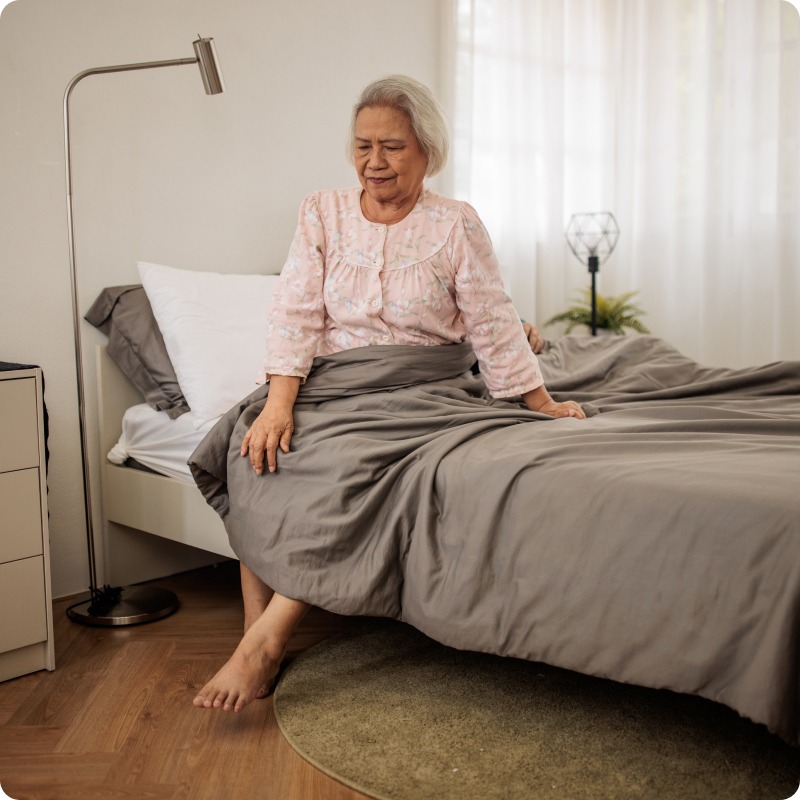Autonomous AI for 24 / 7 Patient Monitoring
No wearables. No added staff. Just smart oversight.
Chooch keeps watch for patient risks like bed exits, wandering, and long periods of immobility—alerting your team when action is needed. It runs quietly in the background, easing the burden of constant rounding or check-ins.
Vitals react. Behavior warns first.
Proactive patient monitoring—No devices, no delays
Chooch Autonomous AI analyzes live video to detect early risk—wandering, falls, and immobility—before vitals ever change. It frees up staff and fills the blind spots that traditional monitoring systems miss.
This isn’t just remote monitoring. It’s autonomous oversight—patient safety that never takes a break.
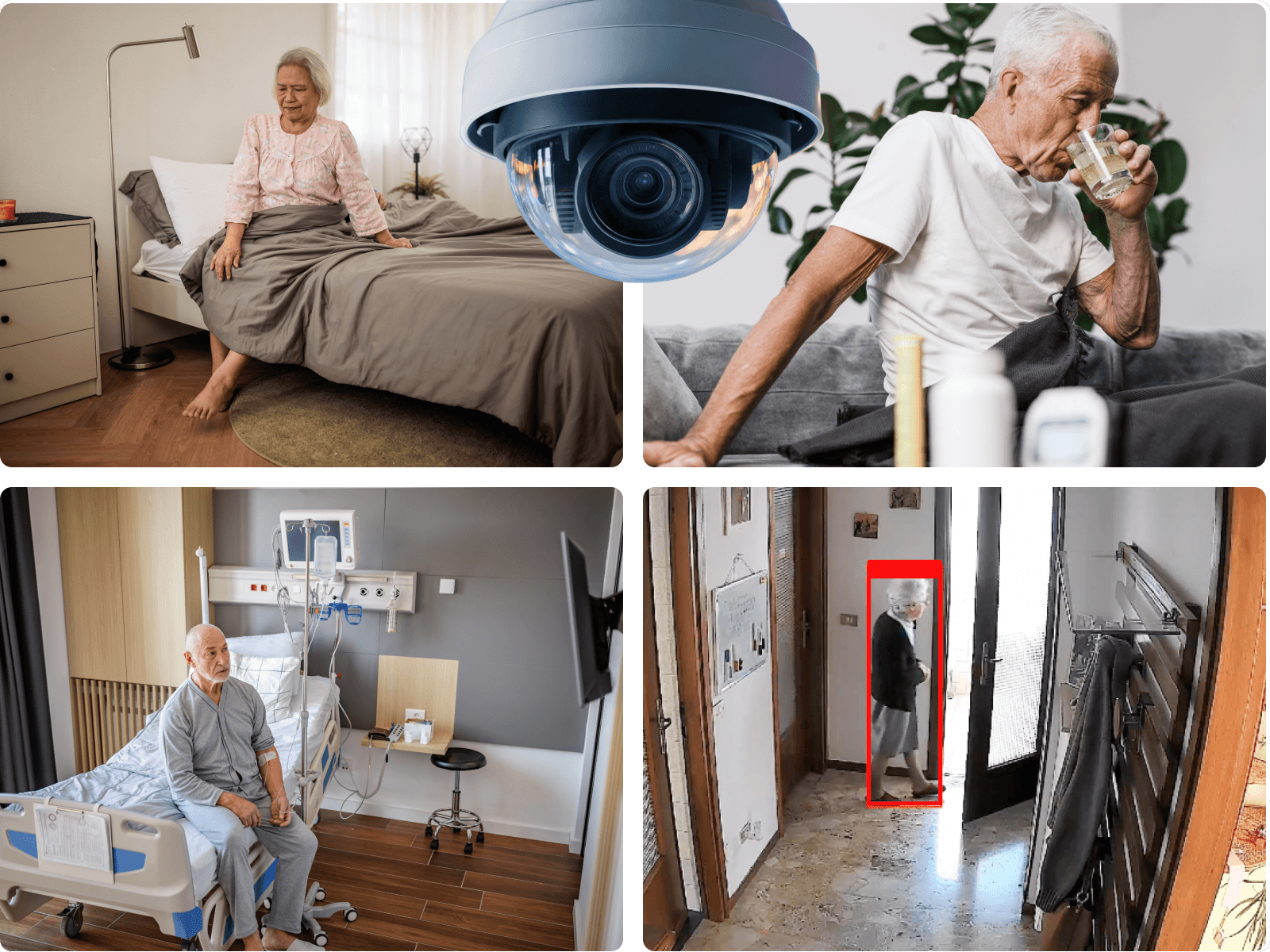
BENEFITS
Why Chooch Autonomous AI belongs in your remote patient monitoring
Chooch Autonomous AI is purpose-built to solve the limitations that frustrate clinical teams and threaten patient safety. When constant monitoring isn’t possible, and devices go unworn, Chooch ensures no risk goes unseen.
Close the visibility gap without added workload
Catch real-time behavioral cues and reduce preventable fall and injuries.
Maintain safety without wearable compliance
Deliver 24/7 oversight—even when patients remove or ignore devices.
Reduce staff workload without sacrificing safety
Eliminate manual checks and refocus clinicians on patient care.
Act on risk before it becomes harm
Trigger immediate alerts that speed up response and prevent escalation.
Results
Remote monitoring results that matter
Manual monitoring is time consuming and misses warning signs. Chooch Autonomous AI prevents harm before it happens—with results that speak for themselves.
50% faster
staff response time
40% fewer
preventable incidents
60% reduction
in false alerts
BEHAVIOR MONITORING
Autonomous AI that understands movement, not just motion
Chooch identifies the patterns that precede harm—tracking real human behaviors, not just vitals or sensor triggers. With AI models trained for clinical relevance, our system detects critical movement cues in real time and alerts care teams before small shifts become serious incidents.
Walker Use
Track how and when patients use mobility aids. Detect unsafe movement or sudden changes that signal instability.
Not in Bed
Flags when residents leave bed at odd times—helping catch wandering or sleep disruption early.
Bathroom Access
Helps identify reduced mobility or potential UTI risk by tracking missed or delayed bathroom trips.
Fall Detected
Triggers instant alerts when a fall is detected—so teams can respond fast and reduce complications.
Looking for more?
USE CASES
Where Autonomous AI works —From hospitals to homes
Chooch Autonomous AI adapts to any care environment—delivering real-time risk detection without wearables or extra staff. Whether it’s hospital-at-home, long-term care, or aging in place, Chooch delivers the insights to help clinical teams act early and avoid preventable harm.
Keep patients safe at home with 24/7 AI-powered oversight—no sitters required
- Detect bed exits, immobility, and fall risks in real time.
- Replace sitter shifts with autonomous alerts.
- Reduce avoidable ED visits and support care continuity.
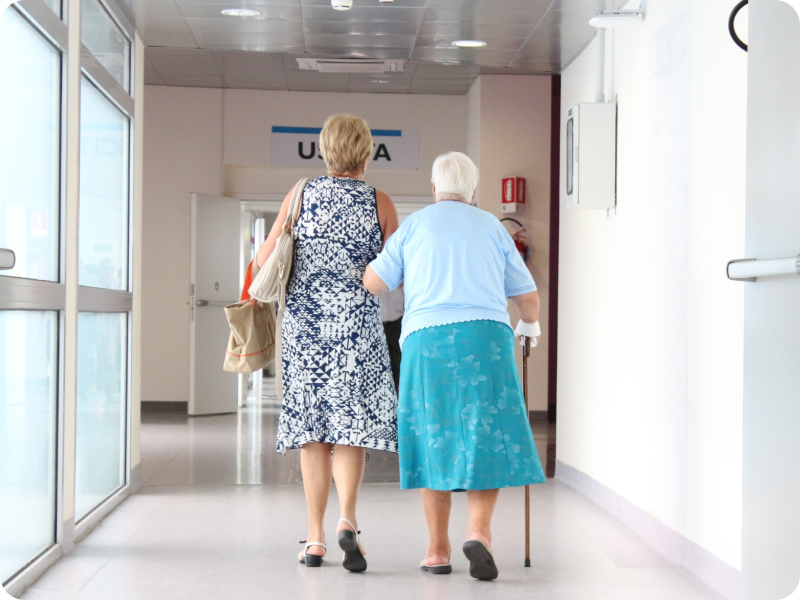
Increase oversight without overburdening staff
- Monitor behavior in shared rooms and hallways—without manual rounds.
- Identify early signs of wandering, fatigue, or confusion.
- Improve response times and reduce fall-related injuries.
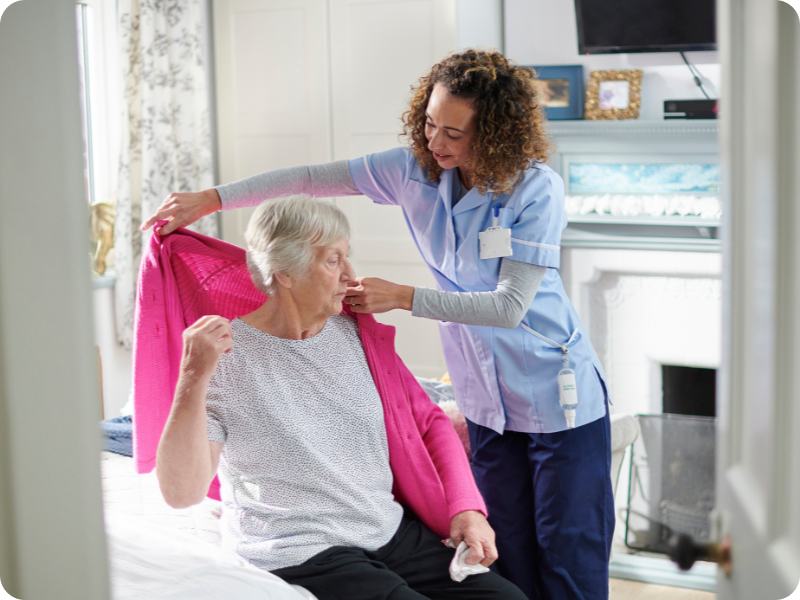
Keep loved ones safer—Without changing their routine
- Catch movement risks when no one’s around to watch.
- Respect independence with discreet, always-on monitoring.
- Alert caregivers to issues before emergencies escalate.
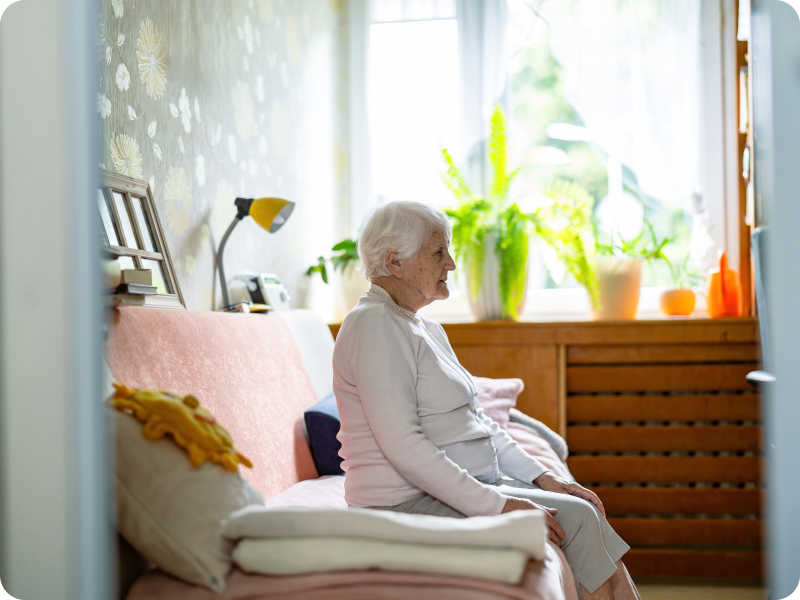
Hospital-at-Home

Keep patients safe at home with 24/7 AI-powered oversight
- Spot falls and bed exits before they happen.
- Replace sitters with autonomous alerts.
- Reduce emergency room visits and support acute care at home.
Skilled Nursing & Assisted Living

Increase oversight without overburdening staff
- Monitor behavior in shared rooms and hallways—without manual rounds.
- Identify early signs of wandering, fatigue, or confusion.
- Improve response times and reduce fall-related injuries.
Aging-in-Place

Keep loved ones safer—Without changing their routine
- Catch movement risks when no one’s around to watch.
- Respect independence with discreet, always-on monitoring.
- Alert caregivers to issues before emergencies escalate.
FAQ
What healthcare teams are asking about Autonomous AI
Choosing the right remote patient monitoring system can raise a lot of questions. Here’s what clinical leaders like you want to know before adding Autonomous AI to their workflow.
How is Chooch different from traditional RPM solutions?
Most systems track vitals. Chooch goes further—analyzing live video for behavior that signals risk before vitals change. No wearables. No manual reviews. Just real-time alerts that prevent harm.
Does Chooch replace clinical staff or sitters?
No. Chooch enhances your team by giving them 24/7 behavioral insight without added workload. It’s like having an extra set of eyes—focused, tireless, and always on.
What kind of infrastructure does Chooch need?
Chooch works with your existing IP cameras and integrates with hospital systems through APIs. It’s designed for fast deployment without overhauling your tech stack.
Is Chooch compliant with patient privacy regulations?
Yes. Chooch is HIPAA-compliant and supports on-premise, cloud, or hybrid deployments. Video feeds are analyzed by AI—not humans—to protect patient confidentiality.
How fast can Chooch be implemented?
Facilities typically go live in under 90 days. Many start with 5–10 rooms, seeing results within weeks—fewer incidents, faster responses, and more confident staff.
Act sooner—Before small signs become serious incidents
No wearables. No delays. Just real-time oversight that keeps patients safe and staff ahead of risk.

